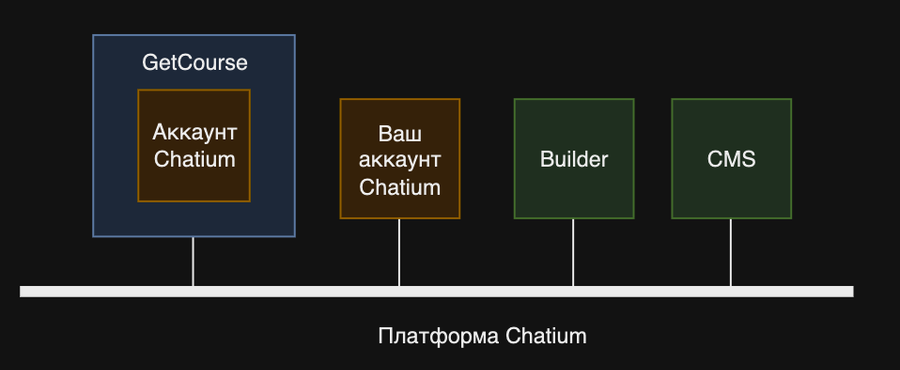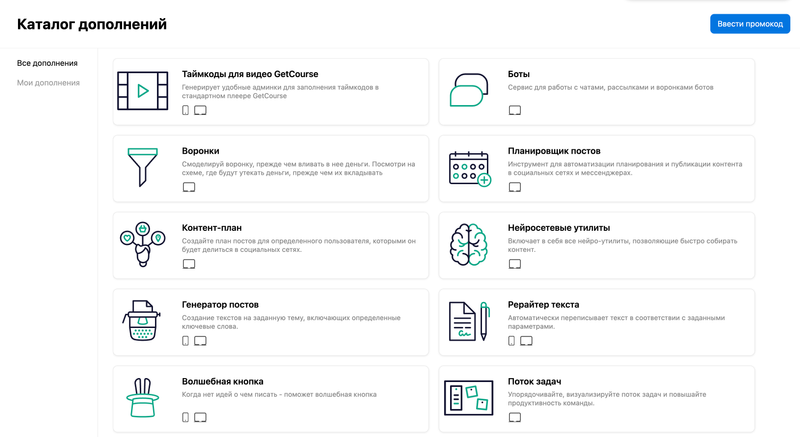Basic Information about Plugins
The Chatium platform consists of multiple accounts that are divided into 3 main types:
- User accounts, where they develop their own code; there can be many programs.
Chatium.ru/is also an account on the Chatium platform. - Developer accounts, which are used for a single piece of code, such as
cmsandbuilder. However, you can keep multiple plugins in one space; this is not prohibited. - The same type of accounts as
chatium, but wrapped in agetcourseshell. They have their own additional methods that regular Chatium accounts cannot call outside of this shell.

What is a Plugin?
A plugin can be any code you write, but it needs to be registered as a plugin, more on that later. For example, builder and cms are also plugins.

Features of Plugins
-
Your code is not copied to other users' accounts.
A plugin allows you to run your code in your personal space; it is stored only in your account.
When you register your code as a plugin and place it in the catalog (app/Store), it does not become public; no one will see your code. -
The entire root folder of your code is considered a plugin.
Your plugin is called at the address:- within Chatium -
<account domain>/app/<plugin name> - within GetCourse -
<account domain>/chtm/app/<plugin name>
You do not need to register each file separately.
If different access levels need to be implemented, it is sufficient to specify permissions within the code; in that case, the call will be as follows - Example:/<account domain>/app/<plugin name>/admin
- within Chatium -
-
The plugin works locally.
The plugin uses only the data available in the developer's space who installed this application. This particularly applies to tables; each will have its own table, but a shared table can also be created, provided this is specified in the code itself.
